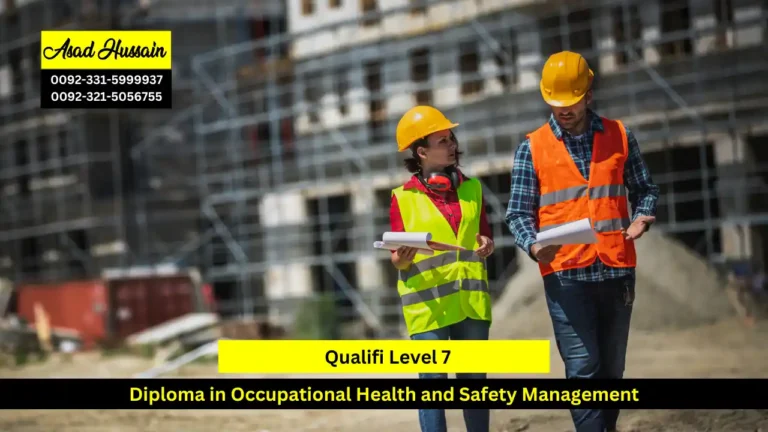In today’s fast-paced world, possessing essential life-saving skills is crucial. The Qualifi Level 3 Award in Basic Life Support and Management of Anaphylaxis is a certification designed to equip individuals with the knowledge and skills needed to respond effectively in emergency situations involving cardiac arrest and severe allergic reactions. This blog post delves into the significance, structure, and benefits of this award
Emergencies can occur at any time, and having trained individuals who can provide immediate assistance can make a significant difference in the outcomes of these situations. Anaphylaxis, a severe and potentially life-threatening allergic reaction, and cardiac arrest are critical conditions that require prompt and efficient intervention. The Qualifi Level 3 Award ensures that individuals are prepared to handle such emergencies with confidence and competence.
The Qualifi Level 3 Award in Basic Life Support and Management of Anaphylaxis is more than just a certification; it is a commitment to safety and preparedness. By equipping individuals with the necessary skills to handle life-threatening situations, this award plays a vital role in promoting public health and safety. Whether you are a healthcare professional, a teacher, or simply someone who wants to be prepared for emergencies, this qualification is an invaluable asset.
Investing in this training not only enhances personal and professional development but also contributes to the well-being of the community. Consider enrolling in the Qualifi Level 3 Award today and take the first step towards becoming a capable and confident first responder.
Program Highlights
The Qualifi Level 3 Award in Basic Life Support and Management of Anaphylaxis consists of 1 credits for the completed qualification.
Mandatory Units
- Basic Life Support and Management of Anaphylaxis
Entery requirements for the Qualifi Level 3 Award in Basic Life Support and Management of Anaphylaxis are following:
- There There are no other pre-requisites for this qualification. Entry is at the discretion of the centre; however, learners should be able to work at Level 3 and above and should be aged 16 years and over.
- Learners must demonstrate first aid procedures as part of their assessment, as they would in a real work environment, including providing CPR to a casualty on the floor. Therefore, learners must be physically capable of performing CPR on the floor.
- Learners must have sufficient command of the English language to understand and undertake the recommended assessment methods for this qualification.
- Understand the Principles of Basic Life Support (BLS):
- Learners will be able to explain the fundamental principles of BLS and the importance of quick and effective intervention in emergencies.
- Learners will understand the chain of survival and its components.
- Perform Cardiopulmonary Resuscitation (CPR):
- Learners will demonstrate the correct technique for performing CPR on a casualty, including chest compressions and rescue breaths.
- Learners will be able to identify and respond to signs of cardiac arrest in adults, children, and infants.
- Use an Automated External Defibrillator (AED):
- Learners will be able to safely and effectively use an AED during a cardiac arrest situation.
- Learners will understand the importance of defibrillation and the steps involved in using an AED.
- Recognize and Respond to Choking Incidents:
- Learners will be able to identify signs of choking and perform the appropriate first aid procedures to relieve airway obstruction.
- Learners will demonstrate the correct technique for performing abdominal thrusts (Heimlich maneuver) and back blows.
- Identify Signs and Symptoms of Anaphylaxis:
- Learners will understand the causes, triggers, and common signs and symptoms of anaphylaxis.
- Learners will be able to distinguish between mild and severe allergic reactions.
- Administer First Aid for Anaphylaxis:
- Learners will demonstrate the correct use of adrenaline auto-injectors (e.g., EpiPen) to treat anaphylaxis.
- Learners will understand the importance of timely administration of adrenaline and the subsequent steps to take after administering the injection.
- Implement Aftercare and Monitoring:
- Learners will be able to provide appropriate aftercare for casualties who have experienced cardiac arrest or anaphylaxis until professional medical help arrives.
- Learners will understand the importance of monitoring the casualty’s condition and recording vital information for emergency responders.
- Work Effectively in a Real-World Environment:
- Learners will demonstrate the ability to perform first aid procedures, including CPR, in realistic scenarios that simulate actual workplace emergencies.
- Learners will show competence in maintaining composure and applying their skills under pressure.
- Communicate Effectively in Emergency Situations:
- Learners will be able to communicate clearly and calmly with casualties, bystanders, and emergency services during an emergency.
- Learners will demonstrate the ability to provide clear instructions and reassurance to those involved in the emergency.
- Understand Legal and Ethical Considerations:
- Learners will have a basic understanding of the legal and ethical considerations related to providing first aid, including the duty of care and consent.
By achieving these learning outcomes, participants will be well-equipped to provide immediate and effective support in emergencies involving cardiac arrest and anaphylaxis, thereby potentially saving lives and enhancing community safety.
The Qualifi Level 2 Diploma in Care is designed for:
- Aspiring Caregivers: Individuals who are considering a career in health and social care and want to gain foundational knowledge and skills.
- Current Caregivers Seeking Formal Qualification: Caregivers already working in the field who wish to formalize their skills, enhance their professional development, and improve career prospects.
- Career Changers: Individuals looking to transition into the healthcare sector and embark on a rewarding career path in caregiving.
- Personal Care Assistants: Those currently working as personal care assistants and seeking to advance their skills and knowledge to provide higher levels of care.
- Recent School Leavers: School leavers interested in pursuing a career in healthcare and looking to start with a solid foundation in care principles and practices.
This diploma provides essential training and prepares learners to deliver effective and compassionate care across various healthcare settings, including care homes, hospitals, community services, and more. It equips individuals with the necessary skills to support individuals with diverse needs and contribute positively to their well-being and quality of life. Whether you are starting your career journey or enhancing your existing skills, the Qualifi Level 2 Diploma in Care offers a valuable pathway to a fulfilling and impactful career in caregiving.







